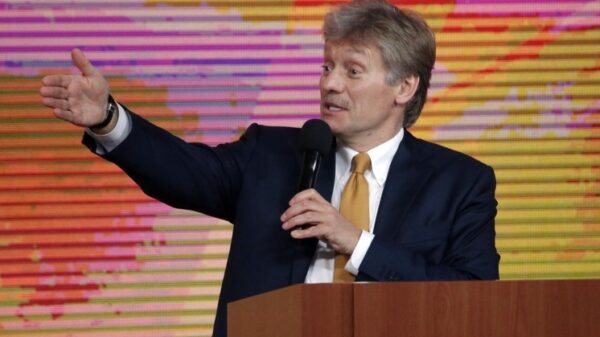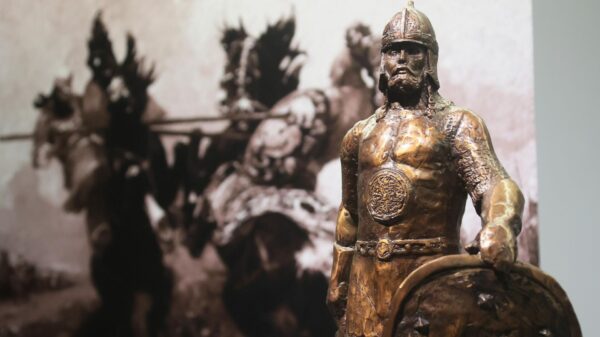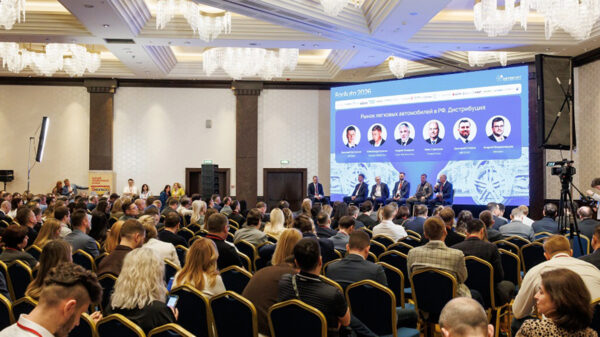 Lindsay Hoyle faced calls to resign on Thursday as Tory MPs remain divided
Lindsay Hoyle faced calls to resign on Thursday as Tory MPs remain divided
Sir Lindsay Hoyle faces growing calls to resign on Thursday as Conservative MPs were divided over whether to try to oust him.
The vote of no confidence in the speaker was signed by 30 Conservative MPs, but others spoke in his defense and insisted that he remain in his post.
Sir Lindsay's future hangs in doubt. balance, here the party's two most senior MPs set out their thoughts on his disastrous decision and his future.
“If someone makes a mistake, even a big one, but they sincerely apologize for it, then you have to accept that.” '
Mark Francois
February 21, 2024 was not the best hour for the House of Commons. After chaotic scenes in the House of Representatives, members of the Scottish Nationalist Party walked out, followed in turn by a large number of Conservatives.
The public, many of whom were expecting decisive votes at the end of a very important vote. The debate over what some are now calling the «Second Yom Kippur War» must have been watched with a mixture of sheer amazement and growing anger.
In the wake of this, a number of MPs, including some of my Conservative colleagues, signed a preliminary bill expressing no confidence in Sir Lindsay Hoyle as Speaker and thus effectively seeking his removal. I understand why many of my Conservative colleagues were angry with him, but I would respectfully suggest that they are shooting at the wrong target (much to Labour's relief).
Despite all the confusion surrounding Wednesday night's events, we can be sure of at least two things. Firstly, the SNP only have three “opposition days” a year, during which they are allowed to choose a debate topic of their own choosing. It is not unusual for the Government to also introduce and introduce amendments — to make their point — but then allowing an opposition amendment from above not only went against most precedents, but had, in layman's terms, the effect of 'stealing' the Scottish National Party debate , in particular to avoid a potentially massive Labor rebellion, which could potentially involve more than 100 MPs.
Having watched the SNP in the House of Commons for over two decades, they do have a reputation for manufactured anger (my old friend Pete Wishart is a former master of this) but in this case they had every right to be completely furious — and for the occasion , in case you missed it, they were.
Secondly, as numerous MPs testify, shortly before the announcement of which amendments should be selected for debate (and then possibly vote), the Speaker and Sir Keir Starmer , the leader of the Labor Party, disappeared into the meeting room (a small room just behind the Speaker's Chair) and were absorbed in conversation for some time.
 Mark Francois, Conservative MP for Rayleigh and Wickford, places the importance of Sir Lindsay Hoyle's sincere apology. Photo: MARTYN WHEATLEY/i-IMAGES
Mark Francois, Conservative MP for Rayleigh and Wickford, places the importance of Sir Lindsay Hoyle's sincere apology. Photo: MARTYN WHEATLEY/i-IMAGES
It appears that this is when Sir Keir laid out his case for choosing Labour's amendment. Hansard does not tell us what was said in that room — only the two of them will know — but if there is any suggestion that Sir Keir threatened the position of Speaker in the new Parliament if he did not carry out his orders, then it would be extremely serious , especially for the former Director of Public Prosecutions himself.
A (slightly) more charitable suggestion is that Sir Keir highlighted to the Speaker the potential threat to Labor MPs and their families from Islamist extremists if they did not have » safety valve» allowing the Labor Party amendment to be voted on. If this is true, then the obvious question is: what about all the other MPs and their families?
In any case, the Speaker chose the Labor amendment, which caused an uproar. By the end of the evening, the Speaker apparently realized that he had made a terrible mistake (made worse by the fact that the Clerk of the House, Tom Goldsmith, had written him a note warning him of the possible consequences).
Confronting the House of Commons is not easy at the best of times, but especially when they are as angry as they were on Wednesday night. However, Sir Lindsay returned to the House and apologized. It was clear to everyone that he was repentant — even almost crying — and that his apology was clearly sincere.
In all the years that I knew him, he had a deep love for the House of Commons as an institution. , and what happened obviously upset him deeply.
As I said in the House of Commons on Thursday morning, if we were in the House, we would have to apologize to the Speaker, and we expect that he will accept this apology at face value and forgive our mistake — we ourselves must extend the same courtesy to him.
I also feel strongly about this for very personal reasons. My best friend in Parliament, Sir David Ames, was brutally murdered by an Islamist terrorist — I can't even bring myself to mention his name — but who told his Old Bailey trial that he did it «because of the way he voted». .
At the time, I cannot tell you how supportive and sympathetic Sir Lindsay was, not only to me, but to Sir David's family, his staff and the many other MPs who were also grieving terribly. He did everything he could to help the House of Representatives cope with their terrible loss.
These were the actions of a decent, honest, honorable man of character and we would, in my humble opinion, be very unwise. leave in anger because he made a real, albeit admittedly important, mistake.
The Scottish National Party (SNP) did not have a monopoly on Wednesday night's fury and so I can well understand, given the clearly heated nature, why some of my colleagues, including some personal friends, subsequently brought forward a vote of no confidence. However, I would respectfully ask them to consider before going any further.
As a number of MPs from all sides suggested at the Business Matters conference on Thursday morning, we must atone for what happened on Wednesday by moving debate, if necessary, on Government time, so that we can discuss these important issues in a calmer atmosphere. and with sincere voices at the end — and with a speaker in the chair.
To sum it up, my father, who was a D-Day veteran but died when I was still a boy, taught me that if someone makes a mistake, even a big one, but sincerely apologizes for it, then you should accept it.
If anyone was really to blame, it seems to have been Sir Keir in the first place for putting the Speaker in such an insulting position. We could ask Sue Gray to investigate what was actually said in this room, but she's busy with other things right now.
So, I'm just saying to my colleagues: be careful what you wish for: Sir Lindsay isn't really the villain here. We all know who it is and we should focus on them instead.
“He has changed procedures and ridiculed Parliament and the people it serves.”
Sir Geoffrey Cox
Having decided that the Labor Party should be able to table its amendment and that its amendment should be voted on first, the Labor Party was allowed to take over the Opposition Day debate allocated to the Scottish National Party and effectively reject the Scottish National Party's motion demanding an immediate ceasefire in Gaza.
There are two possible explanations for Mr. Speaker's decision to abandon a long-standing agreement that only the government should be able to amend the opposition's motion of the day.
This agreement ensures that a party putting forward a motion of its choice on Opposition Day (which is designated for each opposition party) is guaranteed to receive a vote unless the government introduces an amendment, thereby expressing the will of the House of Representatives.
First, he did this to help his former party leader get out of a bind. It is reported that around 100 Labor MPs could vote in favor of the SNP's proposal. Secondly, he did so, as he says, in a misguided attempt to protect some MPs, mainly from the Labor Party, from the intimidation that they said would otherwise follow if they voted against the SNP proposal.
Any reason is unacceptable. In the first case, it is abuse of official position. If the latter, then it is a humiliating capitulation to intolerance and tyranny; he humbly asserts that the House of Commons is under the influence of external threats.
The Speaker admitted that he made a serious error in judgment, but the real question is, who prompted him to make this mistake? Having convinced Mr Speaker that he should change the procedures of the House of Commons and allow those mainly Labor MPs to avoid the question, the Scottish National Party, subject only to government amendments, had the right that day to ask MPs to make a decision. Is he saying protect them from intimidation and violence?
 Sir Geoffrey Cox doesn't think Sir Lindsay Hoyle should go, but says both. potential motives were “unacceptable”; Photo: DAVID ROSE/FOR TELEGRAPH
Sir Geoffrey Cox doesn't think Sir Lindsay Hoyle should go, but says both. potential motives were “unacceptable”; Photo: DAVID ROSE/FOR TELEGRAPH
We know that shortly before the decision was made, the leader of the opposition met with him in his apartment. There he addressed the speaker. We can imagine how the disputes went.
MPs should be allowed to vote on different points of view, rather than being artificially constrained by binaries that do not correspond to their understanding of the issues; feelings there ran high; Members of Parliament (old colleagues of the Speaker) were regularly threatened in constituencies outside the House of Commons. The long-standing convention was outdated and needed to be changed. The Speaker was obliged to protect them.
Thus, poison was insidiously introduced. The Speaker of the United Kingdom House of Commons has weakly capitulated to the specter of intimidation among members of Parliament frightened by external threats and apparently too frightened to vote their conscience. He changed procedures to save them from this, at the expense of the other party's rights, and ridiculed Parliament and the people it serves.
What message does this send to the enemies of democracy around the world when they see that the very center of democracy in the UK can so easily be moved by such threats?
I am not calling for Lindsay Hoyle to go . He is upset and realizes that he was wrong in his judgment. But the one who called for the ignominious capitulation, no doubt for purely incidental party gain, and was seen to say «thank you» as he passed the Speaker's chair a few minutes later, was none other than Sir Keir, who in less than a year later he will ask the same people and parliament to entrust him with the security of the nation.
























































Свежие комментарии